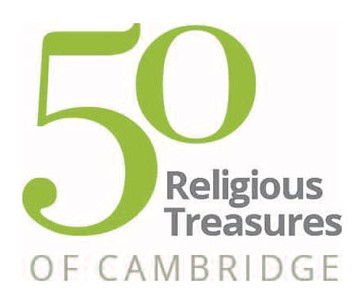Discover Anselm's Proslogion and the ontological argument with Professor Catherine Pickstock.
Meet your lecturer
Catherine Pickstock came to Cambridge on a choral scholarship to study English literature at St Catharine's College and never left! Catherine is a well-known theologian, lecturer and speaker, co-founding the Christian theological and philosophical school of thought called Radical Orthodoxy.
She is especially interested in the relationship between poetics and metaphysics (the branch of philosophy that deals with questions of being and truth), and has worked with researchers from many different fields and disciplines, including English, Modern and Medieval Languages, International Relations, Architectural Theory, Comparative Literature, History and Philosophy of Science, as well as on projects with composers, stone letter-carvers and liturgists.
Explore further
The Proslogion is a prayer written by Anselm of Canterbury between 1077-1078, a very early manuscript of which is kept in the University Library in Cambridge. It is believed to contain one of the first versions of the ‘ontological argument’, as it was later called. The Cambridge manuscript is considered especially valuable because it includes the owner’s name inside, details of its cost, and many annotations in the margins.
The Codex Bezae is an ancient manuscript written around 500 BCE and now in the University Library in Cambridge. It is an almost complete copy of the gospels. Texts like this would have been important to monks like Anselm, and today it forms an important witness text for scholars, like PhD student Jesse Grenz, who are engaged in textual criticism. Jesse tells you a bit more about the Codex Bezae in this supplementary resource.
The Chapel Windows at Emmanuel College in Cambridge were chosen by a previous Hulsean Professor of Divinity in Cambridge in 1884 – Catherine Pickstock is the current holder. Half of the windows show early church scholars and teachers including Origen, John Eriugena, St Anselm, St Augustine of Hippo, John Fisher, Thomas Cranmer, John Colet and William Tyndale.
Consider some questions
What is the significance of the prayer format of the Proslogion?
To what extent do you believe the ontological argument is successful in proving the existence of God?
In Chapter 15, Anselm says that God is beyond what can be thought. Does this contradict the ontological argument in Chapters Two and Three?
What do you think of the idea that Anselm has been misunderstood throughout history?
Guidance for teachers
Download the video transcript


